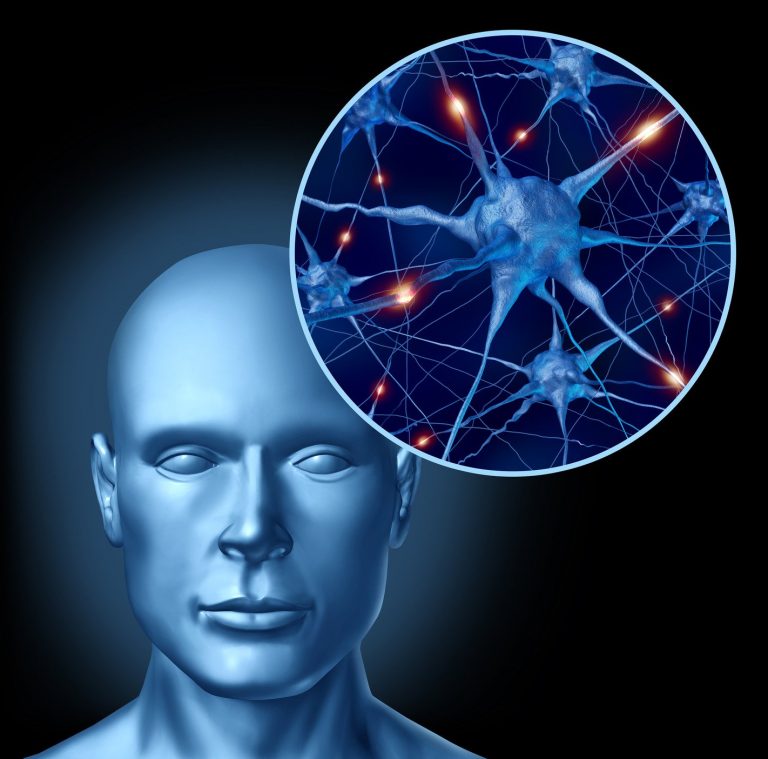Feeling Disconnected? 7 Ways To Reconnect To Yourself

Feeling disconnected can be awful. I know from personal experience. As someone who’s struggled with anxiety and depression, there have been times in my life where I longed for connection from my family members or my friends.
I wanted them to reach out, but I got no responses because they didn’t know. I would spend time on social media, but I didn’t want to post, or even send a direct message. It felt too vulnerable.
The more barriers I put up to reaching out to my social connections, the stronger my sense of depersonalization became. I felt like I was on the outside of myself looking in. Later, I learned that this is a common psychological response to feeling disconnected.
Fortunately, I was eventually able to recognize the pattern I was stuck in and change. My experiences of being depressed and disconnected taught me an invaluable lesson. My well being depends on me having a strong sense of connection to myself and others I care about.
Creating a strong connection with yourself and everyone that you care about is a skill that you can learn and master. The seven techniques explained in this article can help you whenever you might be feeling disconnected.
What Does It Mean to Feel Disconnected?
If you’re feeling disconnected you may feel numb, emotionless, or empty. You might have a hard time recognizing who you are, or maybe you feel like a third party observer rather than the “main character”. It may feel like you’re just along for the ride instead of being the leading actor in your own life.
It’s a frightening and disconcerting experience to not feel at home in your own body or to feel disconnected from reality, and this prolonged sense of dysphoria can have lasting effects on mental health.
Disconnection can also occur alongside dissociation and depersonalization which bring along an increased sense of separation from the world around you and from your own identity.
While it’s common for people who struggle with mental illness to have feelings of disconnection, anyone can feel disconnected, and so many people will experience this feeling at some point in life.
How to Reconnect to Yourself

First of all, it should be said that seeking help from a mental health professional if you experience extreme disconnection or dissociation is the best way to help yourself.
The following methods of reconnecting your body and mind to your surroundings are a great start and can be used by anyone that feels they need to realign themselves with the present moment.
Allow Yourself to Feel
Don’t shut out the bad emotions. This is a difficult task for many who experience feelings of disconnection because it can be a defense mechanism that helps you push away negative emotions.
Emotions like sadness, anxiety, anger, and fear are normal, and they are what make us human. Feeling these emotions strongly and coming out the other side can help us learn about ourselves and teach us healthy ways to deal with these feelings.
Negative emotions are a part of life, and releasing them through emotional catharsis can help us reconnect with ourselves and relieve the pressure that bottled up emotions can cause. Allowing ourselves to experience the bad also helps us appreciate the good.
Move Your Body
Get your blood pumping and your muscles moving. A big part of being connected to ourselves comes from being present in our bodies, and it’s a lot easier to be connected to our bodies when we feel them working – enjoy the burn!
Not only does movement and exercise put your awareness in the present moment, it also releases neurotransmitters like dopamine that help us feel happier and aid in the healthy functioning of so many important physical and psychological processes.
Physical activity also helps with the catharsis we talked about earlier. Exercise is a great way to let out emotions in a healthy way. Instead of interacting with emotions by ruminating and repeating negative stories in your head, you can allow yourself to feel them while you work out your body. This allows emotions to move through you rather than being stuck.
Remember, moving your body doesn’t just mean lifting weights or going on a run. Finding something you like to do is key, whether that’s dancing around your home, hiking, daily walks, or a neighborhood bike ride. Getting your heart rate up doesn’t have to be boring.
Connect to Those Around You
This may seem difficult when you don’t even feel connected to yourself. You don’t have to immediately open up about the serious or painful issues you might be facing, but sharing a story or talking about your interests with friends and family can make you feel more connected to reality.
When your loved ones know things about you, not only do you grow closer to them, but you get to know yourself better too. Something as simple as having a favorite book or TV show in common with a friend can provide a sense of connection and companionship.
If you feel comfortable enough to tell a trusted loved one about your struggles with feeling disconnected, it can be a great way to grow your support system. Having someone “in the know” can also help you feel more validated and less alone when you feel disconnected.
Do Things You Know You Enjoy
Try to embody the cliche: It’s the little things in life that matter most. Do small things that give you happiness throughout the day, and be completely focused on the moment.
This doesn’t have to be some grand project or an hour-long commitment to working on a hobby. Try doing simple things like making coffee with your favorite creamer and slowly sipping it while focusing only on the taste, or turning your phone off before stopping at your favorite park to watch the sunset.
As you find these moments throughout the day, try to focus on the moment and think only of the experience at hand. Making a point to do the things that bring you happiness can help you reconnect to yourself and to the world around you.
Serious Self-Care
It’s surprisingly easy for us to put aside our most basic needs, but making sure we eat at normal intervals, getting the right amount of sleep, and keeping up on good hygiene are all important to both our physical and mental health.
With how busy so many of us are in today’s fast-paced world, the things we do to physically care for ourselves are either done robotically with no second thought, or they may go by the wayside altogether.
Cut out a chunk of time to go through an extensive self-care routine. When you shower, use your favorite soap and focus on the feel of the water, put on your favorite lotion, brush your hair gently, and go through your dental care routine. During the entire process, think about why you’re doing this and how it benefits you and your body.
This not only helps you connect to the present moment but allows you to take some time to reconnect your mind to your body and focus on its needs.
Journaling
You may feel like you don’t have anything to write, and that’s okay. Keeping a journal that’s only for your eyes gives you the opportunity to share your deepest, most hidden thoughts and feelings – feelings that you may even be hiding from yourself.
When you start, maybe the only thing you have to say is “I don’t know what to write, I felt nothing today.” That’s perfectly fine. By writing down your stream of consciousness and tracking the events of your day, you connect to your reality and to your life in a solid, concrete way that’s different from abstract thinking.
Keeping a journal or taking notes about your day can also help you grow awareness about your habits and symptoms. If you look back through your entries and notice that you often feel disconnected around the holidays or after certain events, it can help you come up with healthy solutions or alternatives so you can avoid stress and have more compassion for yourself and your emotions.
Mindfulness and Meditation
This looks different for different people. Practicing mindfulness can mean meditating in the classical sense of the word, but it can also simply mean being present.
Take five minutes to sit wherever you are and use your senses to experience the world around you. Feel your clothes on your skin and the texture of the objects around you. Focus on every sound you can hear and the movement of your body as you breathe. Breathing exercises may also help you relax, regain focus, reduce stress, and help with mindfulness.
Meditation has been shown to help with psychological health and is often praised for its therapeutic benefits, including improving awareness of oneself and others, and helping with the treatment of conditions like anxiety and depression.
Practicing mindfulness and meditation helps to bring you back to the present moment and could have benefits on your overall mental health.
What To Take Away

Feeling disconnected might be an entirely new experience for you after a stressful week, or you might experience disconnection as a result of another mental health issue.
Be aware that these methods aren’t a replacement for professional help. Therapy is always recommended for those that experience intense or prolonged disconnection, or for those with other mental health conditions.
Reconnecting your body and your mind can help you better relate to the people and things around you, and can help you feel more comfortable in your own life. Using these tips is a great start to getting to know yourself better and to feeling more connected to yourself and others.
Remember to be kind to yourself – anyone can feel disconnected, and you’re not alone.




